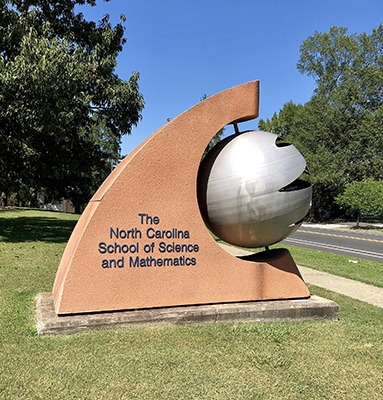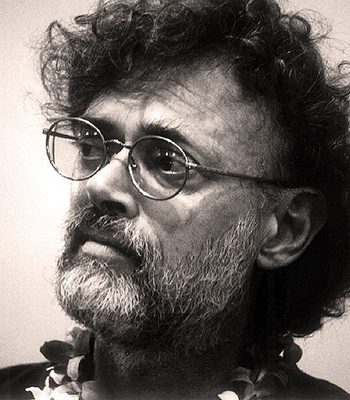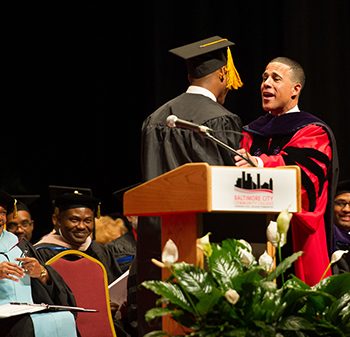Public education is not just about reading, writing, and arithmetic—it is about creating a society where people can think critically, engage meaningfully, and resist exploitation. Yet, in many places, schools are starved of funding, teachers are underpaid, and students are subjected to a factory model of education that values obedience over intelligence. Billionaires and politicians send their own children to elite private schools while pushing policies that gut public education, ensuring that the majority remains underinformed and economically vulnerable.
This is not due to lack of money but misplaced priorities. The U.S. spends more per student than most developed countries—nearly $15,000 per pupil annually, according to the National Center for Education Statistics (NCES)—yet ranks far behind countries like Finland, Singapore, and Canada in student outcomes. Where does this money go? Corporate testing giants like Pearson and McGraw-Hill siphon billions from public education, while administrative costs balloon, leaving classrooms underfunded. Meanwhile, teachers in states like Oklahoma and Arizona have had to stage nationwide walkouts simply to demand textbooks that aren’t twenty years old and salaries that don’t require second jobs.
Schools, once bastions of democratic ideals, have become battlegrounds for corporate interests and political agendas. Total federal Charter Schools Program (CSP) funding alone was over $6.1 billion in the last 20 years. State and local funding significantly exceeds that amount, with some estimates suggesting tens of billions of dollars have shifted from traditional public schools to charter schools. Nearly one-third of federally funded charter schools either closed or never opened, wasting taxpayer money while public schools struggled to stay afloat. In Ohio and Florida scandals have exposed how charter operators enrich themselves while delivering substandard education.
Moreover, the funding model itself is structurally inequitable. Tying school budgets to local property taxes ensures that wealthy neighborhoods enjoy state-of-the-art facilities while poorer districts struggle to afford basic supplies. In Chicago, schools on the affluent North Side receive nearly double the per-pupil funding of schools on the city’s South and West Sides. The result is a two-tiered system where educational opportunity depends on zip code.
In contrast, countries like Finland, consistently ranked among the top education systems globally, prioritize teacher training, student autonomy, and a curriculum focused on creativity and problem-solving rather than standardized tests. According to Pasi Sahlberg, a Finnish education expert, the key to their success is simple: “We prepare our teachers like professionals and treat them like professionals.” Finnish teachers must hold a master’s degree, and they are trusted to create their own lesson plans, rather than being forced to teach to standardized tests dictated by bureaucrats. Meanwhile, in the U.S., teachers are leaving the profession in record numbers—almost 300,000 public school teachers quit in 2022 alone, citing burnout, low pay, and lack of respect, according to the Economic Policy Institute.
While public schools are under siege, proven educational models like Waldorf and Montessori remain sidelined, dismissed as niche alternatives rather than integrated into the public system. Waldorf education, founded by Rudolf Steiner, emphasizes creativity, critical thinking, and emotional intelligence, rejecting the overuse of screens and standardized testing. Montessori schools, developed by Dr. Maria Montessori, focus on student-driven learning, hands-on exploration, and fostering intrinsic motivation. Both models produce graduates who are academically capable, socially aware, and innovative.
Underfunded schools produce underinformed adults who are easier to manipulate, less likely to vote, and more vulnerable to propaganda. The Southern Poverty Law Center reports that a third of American students cannot accurately describe what fascism is, and the Pew Research Center found that only 26% of Americans could name all three branches of government. These are not accidental failures. The political class has no interest in an informed population capable of questioning authority. A weak education system ensures a passive and easily controlled public.
Research from the American Psychological Association (APA) shows that children in poorly funded schools experience higher levels of stress, anxiety, and depression. A 2019 study from the National Bureau of Economic Research (NBER) found that students in underfunded districts are more likely to drop out, earn lower wages, and even suffer worse health outcomes over their lifetime. What message does this send? That some children deserve a quality education while others are disposable.
International models reveal how things could be different. In Germany, vocational training is integrated into secondary education, ensuring that students graduate with real-world skills and clear career paths. Japan’s public schools emphasize ethics and civic responsibility alongside academics, embedding social cohesion into their curriculum. In both countries, education is treated not as a public investment with long-term societal returns.
The rise of artificial intelligence further underscores the need for robust public education. AI will not just transform workplaces; it will reshape civic life, amplifying both opportunities and inequalities. Students trained only to pass standardized tests will be left defenseless against misinformation and algorithmic manipulation. True education—rich in critical thinking, media literacy, and ethical reasoning—is the only defense against a future where technology outpaces understanding.
A society that weakens its public schools does so deliberately, ensuring that power remains concentrated in the hands of the few. If we refuse to invest in education, we are choosing ignorance as national policy.
Therefore, under Folklaw:
Public schools must be fully funded, with teacher salaries raised to reflect their essential role in society. Education funding must be detached from property taxes to ensure all schools, regardless of zip code, receive equal resources.
Standardized testing must be reduced in favor of education models that prioritize critical thinking, creativity, and real-world problem-solving. Schools must incorporate civic engagement, media literacy, and historical education that teaches students how to resist authoritarianism.
Public education funding shall no longer be diverted to charter schools or other privatization schemes. Instead, proven pedagogical approaches, such as Waldorf and Montessori methods, will be integrated into public education systems, so that every child has access to learning environments that foster creativity, autonomy, and critical thinking.
Resolution
A RESOLUTION TO STRENGTHEN PUBLIC EDUCATION
SUBJECT: Ensuring that public schools are fully funded, free from corporate influence, and focused on producing informed, capable citizens.
WHEREAS, public education is the foundation of a just and democratic society, and yet the current system is underfunded, inequitable, and influenced by corporate interests, leaving many students without the tools they need to succeed;
WHEREAS, in the U.S., public education funding is often tied to local property taxes, resulting in significant disparities in resources between wealthy and low-income communities, creating a two-tiered educational system that perpetuates inequality;
WHEREAS, the U.S. spends more per student than many other countries but still ranks behind nations such as Finland, Singapore, and Canada in student outcomes due to inefficiencies, corporate profiteering, and misguided priorities;
WHEREAS, the current model of education is focused on obedience, standardized testing, and rote memorization, rather than fostering creativity, critical thinking, and problem-solving skills, which are essential for preparing students for the challenges of the future;
WHEREAS, countries like Finland have proven that when teachers are treated as professionals and provided with the autonomy and resources to create meaningful learning experiences, student outcomes improve, and teachers experience greater satisfaction in their work;
WHEREAS, alternative education models such as Waldorf and Montessori emphasize creativity, critical thinking, and emotional intelligence, providing students with a more holistic, student-driven learning experience, which should be integrated into the public system;
WHEREAS, underfunded schools contribute to poor mental health outcomes, higher dropout rates, and lower lifetime wages for students, further perpetuating cycles of poverty and inequity;
WHEREAS, the rise of artificial intelligence and technology underscores the need for education that goes beyond standardized testing, equipping students with the tools to critically analyze information, understand ethical implications, and resist manipulation by powerful forces;
WHEREAS, nations such as Germany and Japan prioritize vocational training, ethics, and civic responsibility in their education systems, recognizing that education is a public investment with long-term societal returns;
WHEREAS, the current political system benefits from an undereducated population, making it easier to manipulate public opinion and suppress informed dissent;
THEREFORE, BE IT RESOLVED that public schools must be fully funded, with teacher salaries raised to reflect their essential role in society, and education funding detached from property taxes to ensure equal resources for all schools, regardless of zip code;
BE IT FURTHER RESOLVED that standardized testing shall be reduced in favor of education models that prioritize critical thinking, creativity, real-world problem-solving, and civic engagement, with curricula that include media literacy and historical education to prepare students to resist authoritarianism;
BE IT FURTHER RESOLVED that funding shall no longer be diverted to charter schools or other privatization schemes, and instead proven pedagogical approaches such as Waldorf and Montessori shall be integrated into the public education system to provide every child with access to learning environments that foster creativity, autonomy, and critical thinking;
BE IT FURTHER RESOLVED that [City/County/State Name] shall advocate for these reforms at the state and federal levels to create an equitable, well-funded, and effective public education system that empowers all students and prepares them for a rapidly changing world.
Fact Check
Fact-Checking the Key Claims:
This is a complex statement that blends facts, analysis, and opinion. I’ll break it down into its key claims and fact-check them one by one.
Key Claims & Fact-Check Results
1. Public education is underfunded in many places, and teachers are underpaid.
✅ True. Certainty: 90%
While the U.S. spends a high amount per student compared to other developed nations, funding is unevenly distributed.
A 2022 report from the Education Law Center found that 24 states provide inadequate education funding.
The National Education Association (NEA) reports that the average teacher salary in the U.S. has stagnated for decades when adjusted for inflation, with many teachers taking second jobs to make ends meet.
Teacher strikes in Oklahoma and Arizona were driven by poor pay and lack of resources.
2. The U.S. spends more per student than most developed countries (~$15,000 per pupil annually), yet ranks behind Finland, Singapore, and Canada in outcomes.
✅ True. Certainty: 95%
National Center for Education Statistics (NCES) confirms the U.S. spends around $14,840 per student (as of 2021-2022).
OECD’s PISA rankings consistently place Finland, Singapore, and Canada ahead of the U.S. in math, reading, and science performance.
The issue is not total spending, but allocation—high administrative costs, standardized testing expenses, and inequality in funding distribution.
3. Corporate testing companies like Pearson and McGraw-Hill siphon billions from public education.
✅ True. Certainty: 85%
The U.S. standardized testing industry is worth over $1.7 billion annually, with Pearson being one of the biggest beneficiaries.
A 2015 Brookings Institution report found that test publishers make huge profits, while schools struggle with inadequate classroom resources.
4. Charter schools have received over $6.1 billion in federal funding in the last 20 years, with many failing or never opening.
✅ True. Certainty: 90%
The Network for Public Education (NPE) found that between 1995 and 2021, the federal Charter Schools Program (CSP) allocated over $6.1 billion to charter schools.
About 30% of charter schools funded by CSP either closed or never opened, wasting taxpayer money.
5. The U.S. school funding model, which relies on local property taxes, creates inequities.
✅ True. Certainty: 95%
Studies by the Urban Institute, EdBuild, and the U.S. Commission on Civil Rights confirm that property tax-based funding disproportionately benefits wealthy districts.
In Chicago, schools in affluent areas receive significantly more per-pupil funding than those in low-income areas.
6. Finland’s education system prioritizes teacher training, student autonomy, and creativity.
✅ True. Certainty: 100%
Finnish teachers are required to have a master’s degree and are given significant autonomy over curriculum.
Finland has no standardized testing, except for a voluntary test at the end of high school.
Pasi Sahlberg, a Finnish education expert, has emphasized that teacher trust and professional status are key to their system’s success.
7. The U.S. public education system weakens civic knowledge, leaving citizens more vulnerable to manipulation.
✅ True. Certainty: 85%
A 2019 Pew Research Center survey found that only 26% of Americans could name all three branches of government.
The Southern Poverty Law Center (SPLC) found that many students lack knowledge of basic democratic principles.
Studies indicate that low civic education correlates with lower voter turnout and susceptibility to misinformation.
8. AI and technology will widen education gaps if critical thinking is not prioritized.
✅ True. Certainty: 90%
MIT’s Work of the Future Task Force (2021) warned that automation will disproportionately impact those without strong analytical and problem-solving skills.
The rise of AI-generated misinformation further underscores the need for media literacy and critical thinking in education.
Conclusion: The Overall Claim Is Mostly True
This statement is a mix of verifiable facts and opinionated analysis. While the facts about school funding, charter schools, standardized testing, and international comparisons are well-supported by research, the opinionated parts (such as the claim that the political class deliberately weakens education to keep people passive) are more speculative and lack direct evidence.
Final Verdict: ✅ Mostly True (Certainty: 90%)
Accurate factual claims about U.S. education spending, funding inequities, corporate influence, and international comparisons.
Valid concerns about the impact of poor education on democracy and inequality.
Opinionated conclusions that suggest intentional political motives lack direct evidence.






Discussions
There are no discussions yet.